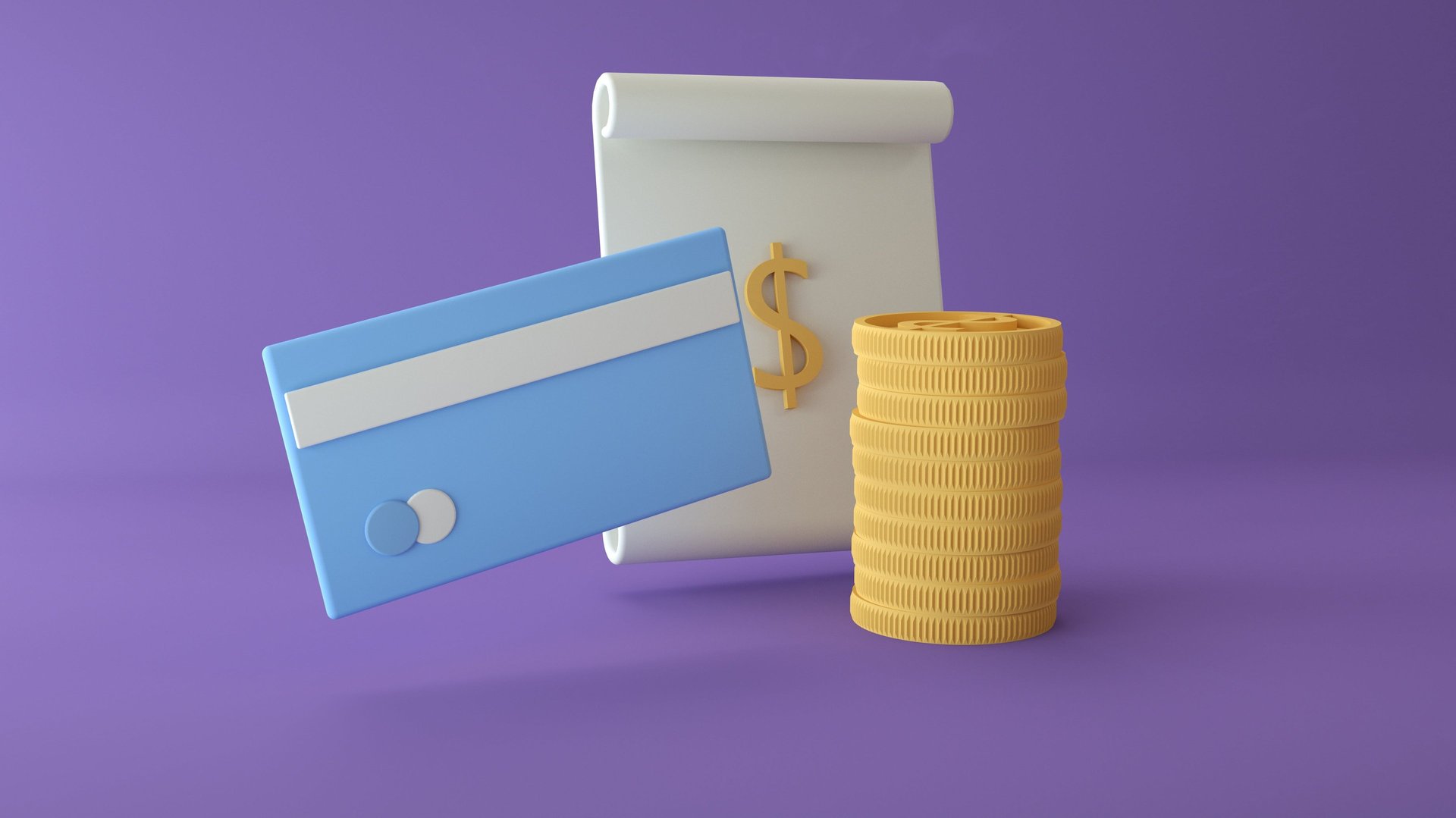
How to Track Your Spending
Gull Rehman
11/19/20236 min read
In the bustling world of personal finance, tracking your spending is akin to navigating a labyrinth without a map. Without a clear understanding of where your hard-earned money is going, you're bound to lose sight of your financial goals.
That's where tracking your spending comes in, acting as your personal financial compass, guiding you towards financial stability and success.
Whether you're aiming to save for a dream vacation, pay off debt, or simply gain control over your finances, understanding your spending patterns is the first crucial step.
Understanding the Importance of Tracking Your Spending
Tracking your spending is more than just keeping a record of your expenses; it's about gaining valuable insights into your financial habits and making informed decisions that align with your financial goals.
By understanding where your money is flowing, you can identify areas where you might be overspending, uncover hidden expenses, and make conscious choices to optimize your spending patterns.
1. Gathering Information: The Foundation of Spending Tracking
Before delving into the intricacies of expense categorization and budgeting, it's crucial to gather all your financial information. This includes reviewing your bank statements, credit card statements, and any other records of your spending.
2. Embracing Technology: Expense Tracker Apps
In today's technology-driven world, a plethora of expense tracker apps are available to simplify and streamline the process of tracking your spending.
These apps offer a convenient and user-friendly platform to record your expenses, categorize them, and generate insightful reports. Popular options include Mint, Personal Capital, and EveryDollar.
3. The Old-School Charm of Journaling
While technology offers a wealth of options, the traditional method of journaling remains a valuable tool for tracking your spending.
By manually recording your expenses, you develop a deeper understanding of your spending habits and can identify patterns that might otherwise go unnoticed.
4. Categorizing Expenses: Bringing Order to Chaos
Once you've gathered your financial information, it's time to categorize your expenses. This involves grouping your spending into distinct categories, such as housing, transportation, food, entertainment, and personal care.
5. Setting Goals and Creating a Budget
With a clear understanding of your spending patterns, you can now set realistic financial goals and create a budget that aligns with those goals. A budget outlines your expected income and expenses, providing a roadmap for managing your finances effectively.
6. Embracing the Power of Automation
To simplify the process of tracking your spending, consider setting up automatic transfers from your checking account to savings accounts for specific goals, such as saving for a down payment on a house or an emergency fund. This automation ensures that you're consistently saving towards your objectives.
7. Regular Reviews: Keeping Track of Progress
Schedule regular reviews of your spending to assess your progress and make adjustments as needed. This ongoing evaluation helps you stay on track with your financial goals and identify areas where you can make further improvements.


Why Track Your Spending?
Tracking your spending isn't just about keeping tabs on your finances; it's about gaining control of your financial destiny.
By understanding your spending patterns, you can identify areas where you might be overspending and make informed decisions to cut back. This newfound awareness can empower you to:
Create a realistic budget: Once you know where your money is going, you can create a budget that aligns with your income and expenses.
Identify spending patterns: Tracking your spending can reveal hidden patterns, such as impulse purchases or unnecessary subscriptions.
Achieve financial goals: With a clear understanding of your spending habits, you can set achievable financial goals and track your progress towards them.
Reduce stress and anxiety: Knowing where your money is going can alleviate financial stress and anxiety, promoting peace of mind.
Remember, tracking your spending is not a one-time event; it's an ongoing journey of self-discovery and financial empowerment.
By consistently monitoring your expenses, making informed decisions, and seeking guidance when needed, you can achieve your financial goals and pave the path to a secure and fulfilling future.


How to Track Your Spending Effectively
There's no one-size-fits-all approach to tracking your spending. The best method for you will depend on your personal preferences and financial situation. Here are some effective strategies to get you started:
Use a Budgeting App: Numerous budgeting apps, such as Mint, Personal Capital, and YNAB, can automatically connect to your bank accounts and credit cards, categorizing your expenses and providing real-time insights into your spending habits.
Manually Categorize Expenses: If you prefer a more hands-on approach, you can manually categorize your expenses using a spreadsheet or notebook. This method offers greater flexibility and customization.
The Cash Envelope Method: This traditional method involves allocating cash for specific spending categories, ensuring you don't overspend in any particular area.
The Journaling Method: This method involves keeping a detailed record of every expense, providing a comprehensive overview of your spending patterns.
Embrace the Power of Automation: Leverage the automation features of expense tracking apps and budgeting software. This can save you time and effort, ensuring that your spending data is always up-to-date.
Additional Tips for Efficient Spending Tracking
Set Spending Goals: Establish clear spending goals for yourself, such as reducing dining out expenses or saving for a vacation.
Schedule Regular Reviews: Regularly review your spending data to identify areas for improvement and make adjustments to your budget as needed.
Seek Professional Guidance: If you're struggling to manage your finances on your own, consider seeking professional guidance from a financial advisor


Making Money Management a Habit
Tracking your spending is an ongoing process, not a one-time task. To make it a habit, integrate it into your daily routine. Review your expenses regularly, whether daily, weekly, or monthly. This consistency will help you stay informed and make informed decisions about your finances.
The Takeaway: A Path to Financial Well-being
Tracking your spending is a fundamental step towards achieving financial well-being. By understanding your spending habits, you can identify areas where you can save money, make more informed financial decisions, and ultimately, reach your financial goals.
Whether you choose a digital or manual approach, find a method that suits your lifestyle and make it a regular part of your financial routine. Remember, tracking your spending is not about restriction or deprivation; it's about empowerment and taking control of your financial destiny.
The Benefits of Tracking Your Spending
1. Gaining Financial Clarity:
By tracking your spending, you gain a clear understanding of where your money is going. This newfound clarity helps you identify areas where you might be overspending, allowing you to make informed decisions about your finances.
2. Establishing Realistic Budgets:
With a solid understanding of your spending patterns, you can create realistic and achievable budgets. These budgets serve as a roadmap for your finances, guiding you towards your financial objectives.
3. Reducing Debt and Enhancing Creditworthiness:
Tracking your spending can help you identify areas where you can allocate more funds towards debt repayment. As you reduce your debt, your credit score improves, opening doors to better financial opportunities.
4. Achieving Financial Peace of Mind:
By taking control of your finances, you gain a sense of peace of mind. Tracking your spending empowers you to make informed decisions, reducing financial stress and anxiety.
Tools for Effective Spending Tracking:
Mint: A free personal finance app that automatically tracks your spending, categorizes expenses, and provides insights into your financial habits.
Personal Capital: A comprehensive financial planning platform that offers expense tracking, budgeting, investment management, and retirement planning tools.
GoodBudget: A user-friendly budgeting app that utilizes an envelope method to help you stay within your spending limits.
YNAB (You Need A Budget): A zero-based budgeting app that helps you allocate every dollar of your income, ensuring you don't overspend.
EveryDollar: A budgeting app developed by Dave Ramsey, a popular financial personality, that focuses on debt management and financial goals.



